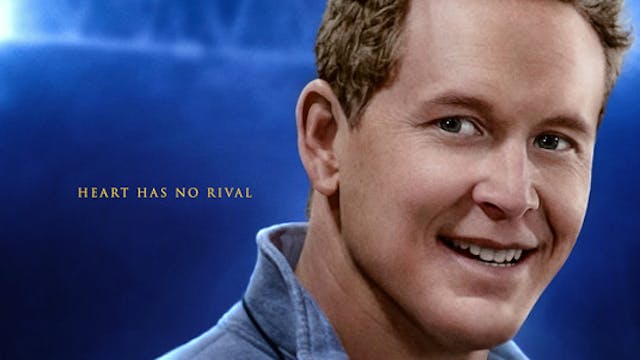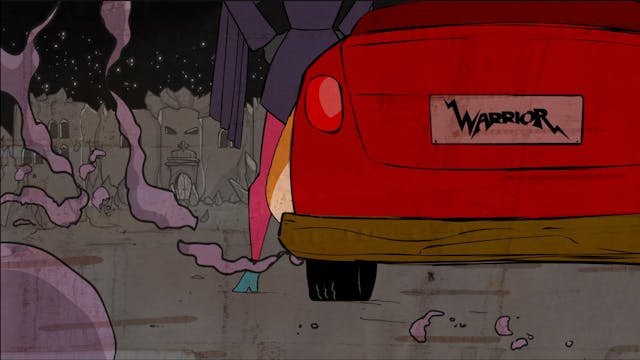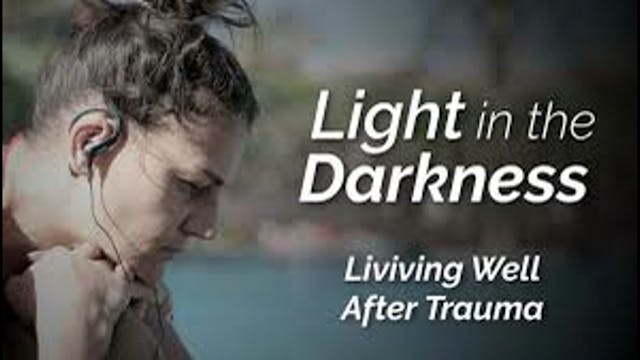HORSESHOE CRABS, audience reactions (with filmmaker interview)
FESTIVAL AUDIENCE FEEDBACK VIDEOS
•
Biography, Documentary, Educational, Independent, Short Films
Interview with the filmmakers:
1. What motivated you to make this film?
We’ve always been fascinated by the ecosystems that exist in cities. New York City has a wealth of wildlife, but nature in urban environments like New York often goes unnoticed. The horseshoe crab is a perfect example: The shores off NewYork are part of the animal’s epicenter, but many New Yorkers have never seen one and don’t know that they play such an important role in the environment or in our survival.
2. From the idea to the finished product, how long did it take for you to make this film?
About 2 years. COVID slowed us down, but fortunately we had all the footage and filming complete before the pandemic started.
3. How would you describe your film in two words!?
Educational, adventurous
4. What was the biggest obstacle you faced in completing this film?
Time! We both have full time jobs and this was a passion project we worked on in our spare time. This film was something we both really believed in and felt was important to put out into the world. As COVID started to become a serious threat, along with a critical need for a vaccine, it felt like the right time to highlight how vital horseshoe crabs are. Humans depend on their survival and their blood is widely used in the biomedical industry, but their numbers are in decline. We are hoping to see a renewed interest in protecting and conserving the species.
5. What were your initial reactions when watching the audience talking about your film in the feedback video?
It was encouraging to hear how much people learned! The feedback was very positive, and the audience seemed to take something away from the film. Many viewers stated they knew very little about them, along with how their blood is used for vaccine development. One viewer said she had a whole different outlook on horseshoe crabs now, and doesn’t see them as just a weird, scary alien-like creature!
6. When did you realize that you wanted to make films?
Andrea: I realized about 10 years ago that filming was one way I could perfectly capture two of my interests: comedy and investigational storytelling. That’s because the medium of film is so versatile. Ultimately, I love telling stories about humans and the planet and showcasing real people/real issues and taking a peek into those lives with the lens. Telling stories is my passion – and I love how much a camera can unveil to the world.
Sarah: I’ve always been a big “nature dork” and want to spent all my time outside. I lived in NYC for a many years and became so interested in what we shared our city with. I pitched the idea to Andrea about a short film series about nature in urban environments, and the project came to life after that.
7. What film have you seen the most in your life?
Sarah: Monty Python’s The Life of Brian
Andrea: I’m too embarrassed to answer this one.
8. What other elements of the festival experience can we and other festivals implement to satisfy you and help you further your filmmaking career?
Networking – and making sure I’m on your email list! I’d love to be in the know on what you have going on.
9. You submitted to the festival via FilmFreeway. How has your experiences been working on the festival platform site?
So far, so good! It’s been a huge help in connecting us to film festivals that are a good fit and focus on environmental shorts.
10. What is your favorite meal?
Sarah: Papaya salad with a really spicy Thai curry
Andrea: So hard to say – but I could eat bread and cheese every day of my life. I do love Sichuan food — beef and ox tripe in chili sauce with rice or anything from Xian Famous Foods in New York.
11. What is next for you? A new film?
Yes! We are currently working on a short documentary focused on oysters and whales. As water quality improves in the New York Harbor, whales are returning to our waters. We went whale watching off the coast of New York and filmed so many whales — it was incredible to see Coney Island on one side of the boat and a humpback whale breaching on the other.
Oysters directly contribute to the health of our water. They are filter feeders - one oyster can filter up to 50 gallons of water a day. New York was once a mecca for oysters – but it no longer is. We spent the day with the Billion Oyster Project, a nonprofit working tirelessly to restore New York City’s oyster population.
-----
HORSESHOE CRABS: How 350-Million-Year-Old Sea Creatures are Vital to Human Survival, 6min., Documentary
Directed by Andrea Kramar
With the worldwide race to develop and manufacture vaccines came renewed interest in horseshoe crabs. These sea creatures are over 350 million years old and their blue blood has been critical to the development of COVID-19 vaccines. Their epicenter is here in the northeast and they descend on our beaches every spring in the thousands. Although the bright blue blood played a vital role in helping to end the pandemic, their numbers are in decline. We spoke with some "local heroes" who have been protecting them, and went out into the waters of Brooklyn with elementary students to monitor and tag them. Numerous species, including humans, depend on horseshoe crabs and it's up to us to help ensure their survival.
Up Next in FESTIVAL AUDIENCE FEEDBACK VIDEOS
-
The Last Champion Feature Film, Audie...
THE LAST CHAMPION, 120min., USA, Drama
Directed by Glenn Withrow
A former championship wrestler is forced to face his past when he returns to the hometown he left in disgrace twenty years earlier. Can he become the hero his town expected… or will he remain a prisoner of his past mistakes? -
I Am The Warrior Short Film, Audience...
I AM THE WARRIOR, 8min., Canada
Directed by Tara Audibert
A Residential School Story. A mother and daughter Fox have a poor relationship. The daughter wants to right the wrongs the residental schools have commit4ed to make her mother this way. She becomes the Warrior in her thoughts to save the y... -
Light In The Darkness Feature Film, A...
LIGHT IN THE DARKNESS, 87min., Documentary
Directed by Daniel GartzkeA hidden epidemic affects nearly ten percent of the American population daily and for those it grasps, hope can seem like a distant dream.
In a message of hope, the film provides an opportunity of support to so many who may ...


